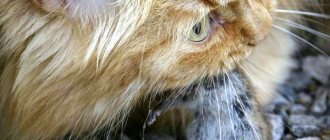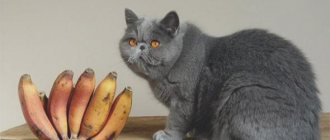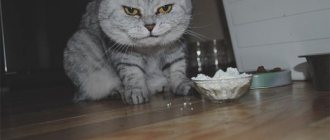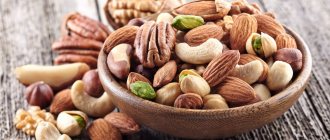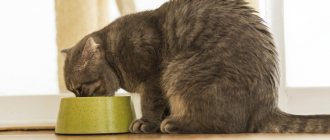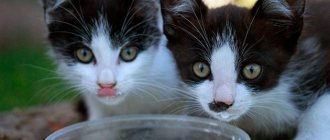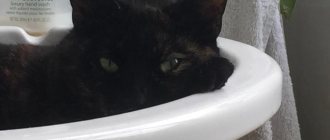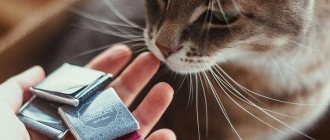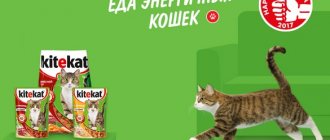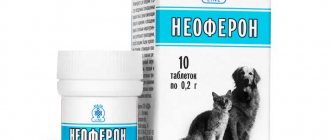Is bread dough safe for cats?
Raw dough is dangerous for cats and can cause bloating and other stomach problems. Additionally, alcohol is a by-product of yeast fermentation. Therefore, eating large amounts of raw dough can lead to poisoning, seizures and even respiratory failure. In this case, of course, you need to contact a veterinarian as soon as possible. Additionally, the dough may continue to expand inside the animal's body and cause intestinal obstruction, so do not leave this product where your cat could accidentally eat it.
Yeast-free baking soda is also dangerous for cats; this product can lead to low potassium levels, muscle cramps and possibly even heart failure.
What should you not give to your cat?
As you can see, you can create very simple and healthy menus for cats with a large number of inexpensive and healthy ingredients. However, before creating a diet for such a pet, you should familiarize yourself with the list of foods that it is better not to eat.
These products are healthy and tasty only for humans, but they can cause considerable harm to cats. The fact is that raisins can cause almost instantaneous heart failure in these pets. Be sure to take this feature into account.
Of course, no one is immune from a cat stealing such products that are harmful to it. If you notice such a “crime” in your pet, then you should definitely take him to the veterinarian, especially if the cat begins to behave strangely. Symptoms of heart failure in cats are usually noticeable right away. These include:
- loss of appetite;
- general weakness;
- weak urination.
Onions are another very dangerous product that can harm your cat. In general, onions are a slow poison that can destroy blood cells in a pet’s body. Eating this product may cause your cat to suffer from anemia. In this case, it is necessary to take into account the onions that are added to minced meat and semi-finished products. Even in baby food this component may occur. Before treating your pet to any of the listed treats, it is extremely important to first familiarize yourself with the composition of the product.
Even more dangerous than onions is garlic. It contains all the same harmful substances, but in even larger volumes. Fortunately, garlic is added to a very limited number of products, but it still shouldn’t be forgotten at all. Be carefull.
Alcohol and tobacco smoke are also harmful to cats. Often, owners watch their pet's reaction with a smile when he drinks a little beer or a stronger alcoholic drink. In fact, the animal will not get anything good from such drinks. Alcohol and tobacco are also harmful to humans, and if you take into account the size of cats, you can come to the conclusion that they can suffer more serious damage to their health.
You should not give your cat chicken, pork or fish bones. Such products can lead to very serious injuries to internal organs, which can lead not only to suffering, but also to the death of the pet.
Cats should not be given white cabbage, as well as fatty, salted, smoked or pickled meat. Legumes and pasta can lead to fermentation, flatulence and gastritis. You should not treat your cat with confectionery. Sweet fruits and steamed grains can be bad for your pet's teeth.
You should not give your cat fatty or river fish.
It is not recommended to give cats such treats as ice cream. Of course, if an animal licks such a product once, nothing will happen to it, but under no circumstances should it be used as a permanent treat. This also applies to those ice cream options that do not use regular sugar.
We suggest you familiarize yourself with How to care for day-old chicks, chick boxes
It is believed that most cats are ardent lovers of fresh milk and cream. In fact, small kittens like these products more than mature cats. Often, adult mustachioed pets are lactose intolerant. In this case, milk or cream should not be given under any circumstances, otherwise the animal will suffer from dehydration.
If a cat is naturally healthy and has good immunity, then all the flaws in its diet will make themselves felt when it reaches old age. Usually at 7-9 years old this animal can eat almost anything, but after this age mark various serious ailments can make themselves felt, for example, urolithiasis, kidney failure, gastritis, liver problems and even diabetes. A cat that eats properly will remain active for up to 10 years or more.
Why is bread harmful to cats?
Flour products should not be given to cats with a sensitive digestive system . If after eating bread the animal experiences vomiting, diarrhea or constipation, then it would be prudent to exclude this product from the diet.
It is important to remember that baked goods contain complex carbohydrates . Their excess can cause obesity, diabetes and arthritis in the animal. Carnivorous predators, as you know, need protein, and bread cannot meet the animal's need for this substance. Excess bread in the diet can lead to taurine deficiency. The consequences of a lack of this substance often result in serious health problems:
- Hair loss.
- Tooth decay.
- Problems with the reproductive system, which especially negatively affects pregnant cats.
- Cardiovascular problems.
Excess bread and other flour products in the diet is a common cause of obesity, this is especially true for animals that permanently live in an apartment. Their physical activity is usually limited.
How to properly enter into ((close bread, so as not to harm your pet?
Prefix bread products should not make up the vast majority of the cat's daily food intake. It is better to give bread in strictly limited quantities and, if possible, every day. You cannot feed your pet:
- Bread with additives or spices.
- Sandwiches with creamy peanut or other butter.
- Bread with sauce: cheese, mushroom, mayonnaise, ketchup and others.
- Sweet pastries, especially with chocolate.
Unfortunately, owners often pamper their pets with bread with sour cream or bread soaked in milk. This is not prohibited, but there is no reason to forget about the rule - everything is good in moderation. Giving croutons or toasted bread in a toaster is also not prohibited, although this is done no more than twice a week.
Summing up, we can safely say that bread is not contraindicated for cats, unless you follow all the above recommendations, not forgetting about the norm, however, there is no need to deliberately accustom the animal to this product.
Is toast and croutons safe for cats?
Not only people love toasted bread, but also many cats. These products are not dangerous in small quantities, but they are not recommended to be given to your pet every day. If bread is burnt in a toaster, it is recommended to throw it away, since burnt toast contains acrylamide, a product very harmful to the health of people and animals. Toast or toast should not be very hard. If the animal has difficulty chewing them, it is recommended to soak the bread in milk.
Veterinarians do not recommend feeding cats toast or sandwiches containing the following ingredients:
- Chocolate butter. Chocolate and other sweet foods are contraindicated for cats.
- Butter. It is not advisable to give sandwiches with butter to your pet, since such food contains a lot of calories and fat.
- Peanut butter. It is better not to give bread and toast with peanut butter to cats; this product contains a lot of fat and salt.
- Avocados are a safe and healthy food for humans, however, they contain persin, which causes heart and lung disease in cats. Therefore, it is better not to treat your pet to croutons with avacado paste.
- Seasonings. Mayonnaise, ketchut, mustard and other condiments are very harmful to cats. For this reason, you should not treat your pet to hot dogs and similar foods.
Is leucorrhoea safe for cats?
Bread can be given to animals in reasonable quantities. However, baked goods with raisins or garlic can be harmful to cats, since these ingredients are toxic to them. Onions and garlic can cause severe anemia in your pet, and nuts can cause indigestion.
Before giving your cat a piece of a store-bought treat, at least study its composition; a high salt or sugar content is also highly undesirable and can negatively affect the general condition and appearance of the animal. Moreover, we should not forget that the basis of the diet should be animal products, not bread.
In addition to the nutritional value, the bread product is rich in vitamins and minerals, and if the pet likes this outcome, it means that he is lacking one or another element, for example, the adrenal gland, magnesium or potassium. The most useful substances are found in rye and wheat bread (as a result, it is preferable to give it.
Can a cat live without bread?
Many pet owners say that their cats love bread - either freshly brought from the store or toasted or dried. Experts believe that the cause is yeast. They stimulate the appetite of animals - it’s not for nothing that they are used as a flavoring agent in the production of some cat foods and added to some veterinary medications.
If your pet already asks for this, give him a small piece of bread - preferably gray, not white wheat. But under no circumstances should you give it fried – and especially burnt – food. It contains acrylamide. Experiments on laboratory animals have shown that large doses of acrylamide provoke the development of cancer cells in the body.
The cat can easily get all the beneficial substances contained in bread from other foods. Animal proteins are preferable to plant proteins for pets. The former are found in meat, the basis of the furry predator’s diet, while plant proteins are poorly absorbed by the cat’s body. There are few vitamins in bread, so it is advisable that your pet gets them from vegetables and grains. Buckwheat, for example, is rich in vitamins and microelements. It also contains a large percentage of fiber - which improves intestinal activity. When it is broken down, fatty acids are formed, which inhibit the proliferation of pathogenic bacteria and reduce the risk of developing cancer of the gastrointestinal tract.
What should you do if your cat looks into your mouth while you are eating a sandwich? Give him a small piece of plain bread. The following fillings are especially dangerous for pets:
- sausages and pates – they contain salt and preservatives;
- butter – fats in large quantities negatively affect the pet’s weight, digestive and circulatory systems;
- nut butter – can provoke obesity, and with it a whole “bouquet” of diseases;
- chocolate spread and chocolate butter. Cats are absolutely not allowed to eat sweets!
If a cat loves bread, most likely its body is experiencing a lack of some vitamins and microelements. It is worth consulting with a veterinarian - perhaps he will recommend some vitamin supplements to the food.
***
There is no categorical contraindication to feeding bread and buns to pets, but it is recommended to reduce it in the diet to a minimum, and give preference to baked goods made from dark varieties of wheat or rye. Once a week will be enough - the cat gets all the nutrients contained in bread from other products.
Share this article on social networks
Cats, regardless of breed, are carnivores. But sometimes a cat willingly eats foods that are completely unusual for him. Thus, owners often do not know whether it is possible to give cats bread, especially if the pet steals pieces from the table or begs from the bread bin. Analysis of the components and calculation of the permissible dose will help you find out how safe this product is for the animal.
Benefit
You can feed cats bread, but not every day. Products that do not contain preservatives, artificial colors and seasonings are suitable for the diet. The consumption of dark varieties of bread made from wheat and rye is allowed.
Flour products contain elements such as magnesium, iron, potassium. These elements:
- strengthen the immune system;
- remove toxins from the body;
- strengthen nails;
- restore breathing;
- help absorb proteins;
- have a positive effect on the functioning of the heart and brain.
However, you cannot include bread in your diet without foods such as meat, fish, and vegetables.
Is there any harm to cats?
The benefits of bread for cats is a controversial issue. According to nutritionists, this product contains many “empty” calories, has no nutritional value, and the beneficial substances in it can be obtained from cereals. In addition, the cat’s body is poorly adapted to digest complex carbohydrates and flour, so over-consumption of baked goods can lead to not only excess weight, but also digestive problems. However, the right bread will not harm a healthy cat if fed in moderation.
How much can you give?
If carbohydrates make up about 50% of a person’s diet, then a cat’s need for them is small: the basis of the diet is animal food rich in protein. In addition, the digestibility of carbohydrates in cats is limited. But occasionally you can pamper your furry friend with bread, the main thing is in moderation. To ensure that what you eat does not affect the kitten’s health, you must adhere to several rules:
Spices and flavorings have a negative effect on the animal's body.
- Pay attention to the composition of the bread. Before giving your cat a treat, make sure that the product does not contain onions, garlic, raisins, spices, sugar or salt. All of these additives are dangerous for cats, as they can lead to serious health problems and poisoning. Nuts, including walnuts, are also contraindicated: the animal’s liver cannot cope with large amounts of fat and phosphorus.
- Exclude baked goods. Rolls, pies, rolls and other yeast baked goods are unsafe for digestion. In addition, white bread contains much less nutrients than wholemeal products.
- Choose dark varieties. Black and rye bread are rich in microelements, vitamins and fiber, so their benefits are higher than that of plain wheat. In this case, you should give your cat dried and stale bread, since fresh bread provokes fermentation in the stomach.
- Follow the norm. It is permissible to feed a small piece no more than 1-2 times a week as a treat, so as not to develop a bad habit in the cat and not harm its health.
We should not forget that cats are predators. This diet allows them to do virtually without carbohydrate “fuel”: cats are able to produce energy from proteins and fat. However, the presence of carbohydrate-containing foods in the diet is important for digestion and stool formation. Industrial feed already includes a large percentage of carbohydrates produced from grains; their absorption is facilitated by special processing. And to make natural nutrition complete and balanced, you should choose a healthy alternative to bread, for example, cereals and vegetables - the latter are rich in fiber, which cats need for the proper functioning of the gastrointestinal tract.
Consequences of overuse
Flour products have a detrimental effect on the gastrointestinal tract, causing vomiting, diarrhea or constipation. If a cat suffers from problems with the digestive system, then it is forbidden to eat bread.
Flour products contain complex carbohydrates, which cause diseases: obesity, diabetes and arthritis. Cats' bodies need proteins that are not found in bread. Because of this, the animal has a lack of taurine, which causes:
- hair loss;
- premature birth in pregnant animals;
- problems with the heart and circulatory system;
- lethargy;
- tooth loss;
- reproductive dysfunction.
Excessive consumption of bread is the main cause of animal obesity. This disease often occurs in indoor cats that lack regular physical activity.
This is interesting: A cat’s claws are peeling - how to help
Is it worth feeding?
Wheat bread is a neutral product. The classic loaf contains no substances that are toxic or dangerous to animal health, but there is also little benefit from it: the proportion of dietary fiber, microelements and vitamins in processed flour is practically negligible, and the calorie content of white bread is high. Although whole grain varieties contain many useful substances, it is not necessary to intentionally give bread to your cat.
Not all pets gravitate towards flour and eat it with pleasure. But if a cat really loves baking, the owner should be careful. The enzymes in the animal’s stomach and intestines are unable to process large amounts of carbohydrates that make up bread, so you should not encourage your pet’s hobby, especially a young one, so that eating flour does not become a habit.
A cat's love for bread can be put to good use, for example, by feeding her medicines hidden in the crumb of bread, which she eats with pleasure.
Experts advise teaching your pet a healthy diet from an early age.
Veterinarians remind that a kitten’s behavior, including eating behavior, is formed from the first months of life, so proper nutrition and high-quality food are especially important for him at this time. It is recommended to feed the kitten healthy and harmless food, without being carried away by useless treats. A three-month-old baby has already formed gastronomic habits: at this time the kitten switches to the diet of an adult animal. If you set the right vector in childhood, from the first months of life, then in the future this will protect the young cat from troubles with the digestive system, and, in addition, will help avoid greed for harmful foods.
